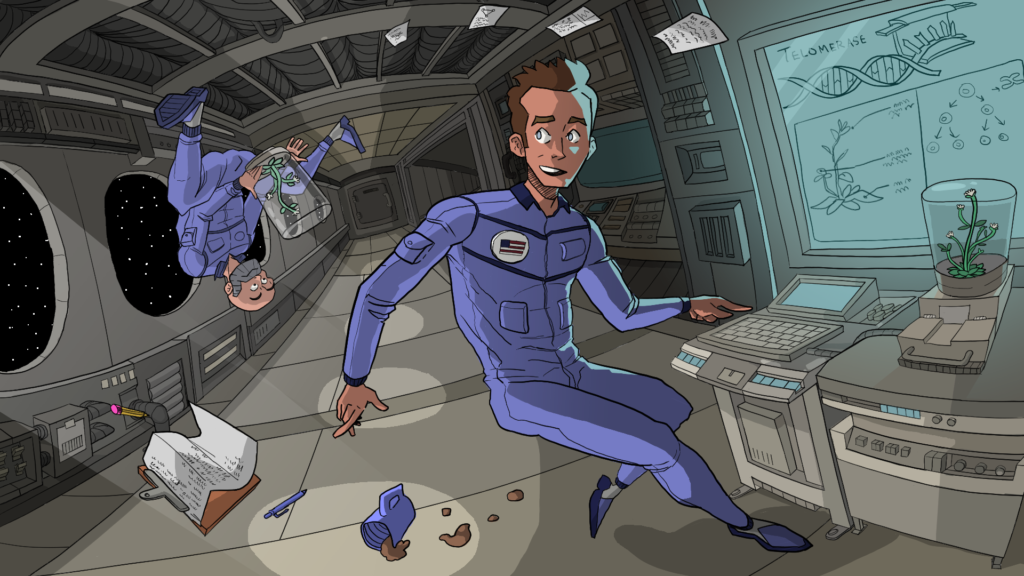Farming the cosmos: NASA-funded study investigates effects of space radiation on plants during interplanetary travel

Exposure to extreme environmental factors related to space travel, including microgravity and space radiation, impacts biological systems like plants.
Researchers in the Department of Biochemistry and Biophysics at the Texas A&M College of Agriculture and Life Sciences are striving to understand the largely unknown effects of these extreme conditions in space.
Dorothy Shippen, University Distinguished Professor and Regents Professor in the Department of Biochemistry and Biophysics, is leading a study to determine how radiation exposure in space affects plant telomeres, which are basic building blocks in the DNA at the very ends of chromosomes. Much like plastic tips on shoelaces prevent the lace from fraying, telomeres help keep chromosomes stable and healthy.
Telomeres are not static, Shippen said. They contract and expand due to environmental stressors, and if they get outside the normal size range, they lose their protective function. There is evidence in plants and humans that chromosomes become unstable when telomeres get too short, and various cancers in humans are associated with telomeres lengthening.
NASA is interested in learning how and why some of the extreme stressors in space, particularly space radiation like gamma and cosmic rays, impact plants. This is where the Shippen Lab at Texas A&M saw an opportunity to contribute.
“Plants are obviously very important for space travel, and so from a practical point of view we want to understand how we can help them survive the extreme conditions of space,” Shippen said. “There is so much we don’t know, but this telomere research will answer some of the basic questions we have related to plants and space radiation.”
Shippen is known internationally for her pioneering work in establishing the plant Arabidopsis thaliana as a model for telomere biology. She will act as principal investigator and team with collaborators Sarah Wyatt at Ohio University and Susan Bailey at Colorado State University.
Borja Barbero Barcenilla, a postdoctoral fellow in the Shippen Lab, will conduct experiments and collect data for the study.
The team’s specific goals are to assess the impact of space radiation on oxidation status, telomere length dynamics and genome stability in plants.
The research team hypothesizes that exposure to space radiation triggers genome oxidation and an increase in the activity of telomerase, a specialized enzyme responsible for maintaining telomeric DNA. The preliminary data suggests a strong connection between them.
The preliminary data of Shippen and Wyatt was gathered from Arabidopsis seedlings sent into low Earth orbit on a previous space flight. The team showed that the telomere lengths of the plants did not change, but that telomerase activity increased significantly – at least 150-fold. This unexpected finding suggests the telomerase enzyme may play some protective role during space travel.
The NASA-funded research will allow Shippen’s team to send their own plants into space in the future and perform radiation experiments in laboratories that will mimic the environment plants might be exposed to in space.

